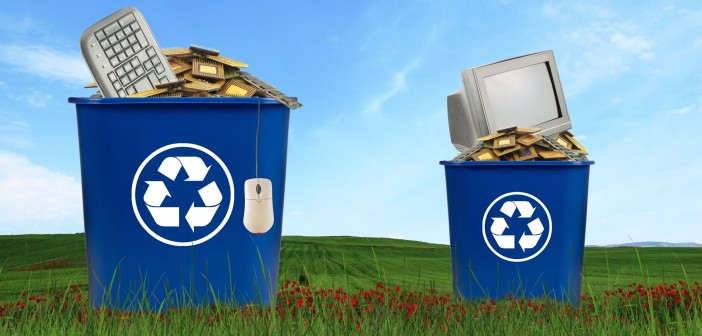The recycling of post-consumer electronics involves the disassembly and separation of the raw materials that go into making electronic consumer goods. For the purposes of this article, the term “recycling” can be taken to mean all forms of materials re-use including trade-in, donation, repair and other sustainable ways of disposing of these items.
Device Pitstop says, “Our latest gadgets, phones and electronics are not biodegradable. This is why governments and industry are working together to solve some of the environmental and health problems brought about by the many tons of discarded electronics we throw out each year. Discarded electronic components contain dangerous levels of chemicals and pollutants. They also contain trace amounts of precious metals and rare earth materials sought after by recycling entities. When untrained personnel attempt to recover these precious materials, they can get sick. A responsible policy concerning discarded electronics would allow for the recovery of these materials without adversely affecting human health or the environment.”
Save Money with a Technology Trade-in
Certain “big box” retail chains will reward you with store credit or gift cards just for bringing in your no-longer-wanted electronic items. These chains include some of the major electronics retailers as well as one or two of the best-known office supply chains. So far, America’s consumer electronics industry has taken in more than one billion pounds of electronics and appliances. Some of these trade-in programs require you to drop your item off at a specific store location while others permit you to mail or ship your item in.
Tax-Deductible Donations
You can save money by donating your unwanted technology items to certain non-profit organizations in exchange for a tax deduction equal to the current fair market value of your items. Some of these organizations will also give you a free vacation voucher as an incentive to donate. Donation is a great way to save money while reducing the amount of e-waste that gets exported or goes into landfills.
The Swap and Barter Trade
The remarketing of brand-name consumer goods is big business. To this end, executives from a certain publicly-owned barter organization recently attended a trade show with the singular mission of purchasing whole lines of outdated electronic goods for use in barter and trade deals. This is according to a recent Chicago Tribune article. For the consumer, there are many organizations and websites that cater to those who wish to engage in swap and barter transactions as a means of disposing of unwanted electronics. In today’s economy, surplus inventories have become the norm for business, and the swap market seems to be the new normal for many electronics enthusiasts.
The Trail of Toxic E-waste
The way we dispose of electronic trash affects others. This is especially true for impoverished villagers living in the developing world where black markets for dismantled electronic waste spring up around hazardous materials dumps. These dumps consist mostly of e-waste taken from discarded consumer electronics. Last year, more than 46 million tons of this type of waste, mostly discarded phones, computers and other electronics was generated in the Western world. Much of this was exported to the developing world where laws governing environmental protection are lax. These numbers are expected to increase going forward. According to the Huffington Post, a great deal of America’s e-waste is exported back to China to places like Guiyu, a town best known for being the home of the largest e-waste site in the world. Handling e-waste is hazardous. Lead, mercury, cadmium, chromium, and polyvinyl chloride (materials common to electronics manufacturing) are known to have toxicological effects on the body that include brain damage, kidney disease and cancer.
There is no shortage of hazardous refuse in this world. In the U.S alone, more than 130,000 computers and a quarter million cell phones are discarded every single day. By being creative with the disposition of our unwanted consumer products, we can save ourselves some money, help protect the environment, and contribute to a better and healthier world for everybody.




